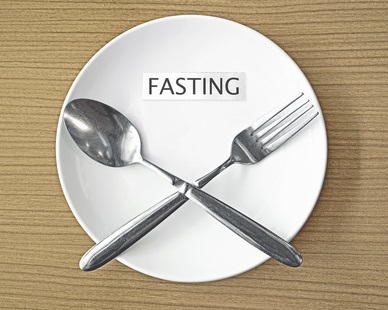Is fasting good for you and when should you do this?
 Just imagine a world where it’s possible for you to feel energetic and kick-start your metabolism while enjoying an assortment of health benefits without having to stick to strict meal schedules or counting on calories. All of these is possible thanks to fasting.
Just imagine a world where it’s possible for you to feel energetic and kick-start your metabolism while enjoying an assortment of health benefits without having to stick to strict meal schedules or counting on calories. All of these is possible thanks to fasting.
What is fasting
Before getting to the definition of fasting, you should know that at no any point is fasting similar to starving. This is what comes to people’s mind when they hear about fasting. The literal or basic definition of fasting is abstaining yourself from food and drink for a specific period.
It is an age-old practice that’s been around for thousands of years, often done for religious reasons. Currently, fasting is gaining popularity due to its health benefits. One of the common benefits is promoting weight loss. There are several types of fasting; they include intermittent fasting, time-restricted fasting, 16/8 fasting, alternate date fasting, 5:2 diet, the warrior diet, and the Daniel Fast.
Intermittent fasting is one of the most used types of fasting. In general, most types of fasts are usually performed over 24 to 72 hours. For the intermittent fasting, you abstain from solid food for 14 to 18 hours.
Benefits of Fasting
Apart from promoting weight loss, there is more that fasting offers to our health. The following benefits have been backed up by science.
Fights inflammation hence promoting better health
Acute inflammation is a common immune process responsible for fighting off infections. However, chronic inflammation can pose serious health problems to you. Studies show that inflammation can develop due to chronic conditions such as rheumatoid arthritis, cancer, and heart disease. When you fast, you decrease the levels of inflammation and also treat chronic inflammatory conditions such as multiple sclerosis.
Improves blood sugar control by reducing the resistance of insulin
When you consume too many sugar and carbs, your body becomes insulin resistant, which paves the way for several chronic diseases including type-2 diabetes. One ideal way for you to avoid going down this route is by fasting. Fasting helps to maintain your body sensitive to insulin. Several studies show that intermittent fasting helps people struggling with insulin sensitivity or pre-diabetes.
Lowers triglyceride levels
 Consuming too much bad cholesterol, causes your triglyceride levels to rise. In turn, it increases the risk of heart disease. Intermittent fasting and alternate-day fasting lowers the levels of triglycerides and bad cholesterol (LDL) BY 32% and 25% respectively. Despite fasting reducing the levels of bad cholesterol, it does not affect the good cholesterol levels in the body.
Consuming too much bad cholesterol, causes your triglyceride levels to rise. In turn, it increases the risk of heart disease. Intermittent fasting and alternate-day fasting lowers the levels of triglycerides and bad cholesterol (LDL) BY 32% and 25% respectively. Despite fasting reducing the levels of bad cholesterol, it does not affect the good cholesterol levels in the body.
Aids in weight loss by limiting intake of calories and boosting metabolism
Theoretically, when you abstain from all or particular foods and beverages, you decrease your total calorie intake. Through this, you increase your body weight loss over time. Short-term fasting has been proven to boost body metabolism by increasing the neurotransmitter nor-epinephrine levels, which enhance weight loss.
When to fast
The benefits of fasting are appealing; however, not all the time is appropriate for you to fast. First, if you suffer from diabetics and hypoglycemia, you should avoid fasting up to when your insulin and blood glucose levels have been normalized. Breastfeeding and pregnant women should avoid fasting as it poses adverse effects on the baby. Additionally, if you have certain health conditions, it will be best to consult your doctor before adding fasting into your lifestyle.
Final thoughts
 Is fasting good for you? Yes. The vast array of potential benefits of fasting ranging from weight loss to improved blood sugar control makes it excellent for your body. With the many different types of fasting, it’s easier for you to pick one that fits into your lifestyle. Incorporating fasting into your routine of healthy nutritious diet, you will have an excellent opportunity of significantly improving the health of your body.
Is fasting good for you? Yes. The vast array of potential benefits of fasting ranging from weight loss to improved blood sugar control makes it excellent for your body. With the many different types of fasting, it’s easier for you to pick one that fits into your lifestyle. Incorporating fasting into your routine of healthy nutritious diet, you will have an excellent opportunity of significantly improving the health of your body.

